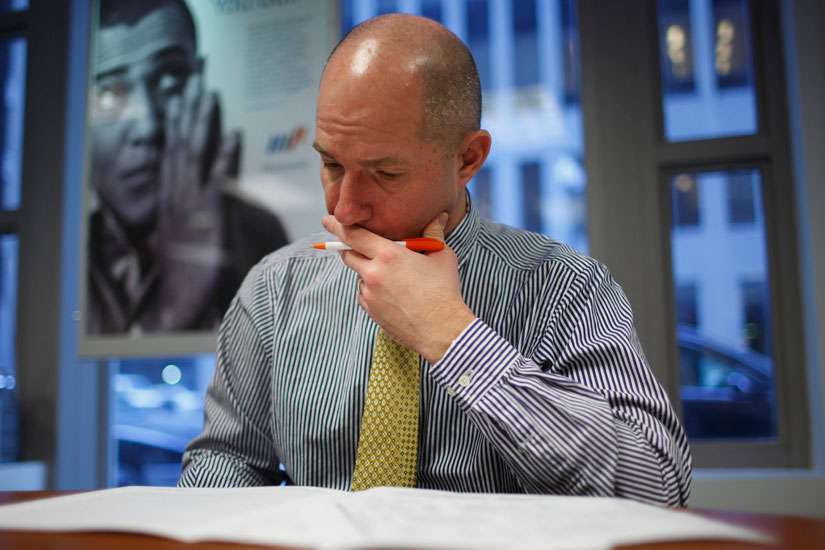The German bishops' conference announced in early May it had adjusted the church's labour law to reflect "multiple changes in legal practice, legislation and society," and would no longer require the church's 750,000 employees to reflect Catholic teaching in their lifestyles.
"It's good the church will now see people as individuals, rather than just generically," said Theodor Bolzenius, spokesman for the Central Committee of German Catholics.
"But it's also positive that people working for the church will be treated differently, depending on their positions, rather than all being required to follow the same rules. Nurses at Catholic hospitals are clearly not in the same category as teachers of religion at Catholic schools," he said.
In a May 12 interview with Catholic News Service, Bolzenius said current church rules had posed "major problems," especially for non-Catholic employees at German hospitals, half of which are church-owned. He added that all Catholic institutions depended heavily on non-Catholic workers and had frequently been taken to court for alleged discrimination under German civil law.
The church's Freiburg-based Caritas organization, whose 590,000 staffers make it one of Germany's largest employers, also welcomed the reforms.
"The bishops' decision shows how intensively our church is now dealing with people's real lives," said Father Peter Neher, Caritas president.
"There will now be a differentiated approach to the duties of loyalty, and attempts to find a proper balance between the church's proper ministry and the individual situation of church employees, at a time when the Catholic Church's handling of people who divorce and remarry or commit to registered civil partnerships encounters public incomprehension," he said.
A bishops' conference statement said the reforms had been proposed by a working group in operation since 2012.
It added that all church staffers, including non-Catholics, would still be expected to work "in the spirit of the church" and "refrain from anti-church behaviour," while those involved in pastoral and catechetical work could face dismissal for "serious breaches of loyalty" such as by promoting abortion or xenophobia.
However, those who remarried without an annulment after divorce or contracted civil partnerships would face dismissal "as a last resort" only if their actions affected "the church's integrity and credibility" or caused "a significant nuisance," the statement said. It also said trade unions would be allowed access to religious institutions to "promote membership" and improve "church working conditions."
The German Catholic news agency, KNA, said the 10-article document had been approved by two-thirds of Germany's 27 diocesan bishops, suggesting there had been "some opposition."
It added that the Catholic Church had no worldwide policy on lay employees and said the right of German churches to operate their own internal employment rules had been upheld in October by the Constitutional Court.
However, public opinion "reacted badly," the agency reported, when doctors were fired for remarrying or teachers "sacked for lesbian unions," while lower German courts had also recently "begun limiting the scope of church laws."
In a May 6 interview, Cardinal Rainer Woelki of Cologne told KNA the revised labour law would not "negate official church teaching that marriage is indissoluble," but would bring church rules "into line with actual practice."
"People who divorce and remarry are rarely fired -- the point is to limit the consequences of remarriage or same-sex unions to the most serious cases," the cardinal said. "The need for a re-evaluation of our labour (regulations) has been much talked about as part of our ongoing dialogue, and our aim now is to respond to our society's changing circumstances."
Announcement of the reforms comes amid preparations for an Oct. 4-25 worldwide Synod of Bishops on the family at the Vatican, where many German bishops are expected to argue for a more liberal church approach to marriage and family issues.
In December, a bishops' conference report suggested most of the country's 66 bishops believed divorced and remarried Catholics who had not received an annulment should be allowed to receive Communion.
In March, German Cardinal Gerhard Muller, head of the Vatican's Congregation for the Doctrine of the Faith, criticized claims by Cardinal Reinhard Marx of Munich-Freising that the German church stood ready to "preach the Gospel in its own original way" rather than being seen as "a branch of Rome," and to "go down new paths" and "pursue its own pastoral care program" regardless of the synod outcome.
On May 9, the Central Committee of German Catholics voted unanimously to demand the blessing of same-sex partnerships and second marriages at the synod, as well as a "reassessment of contraception methods" and "a clear positioning against the still-existing exclusion of homosexuals."


